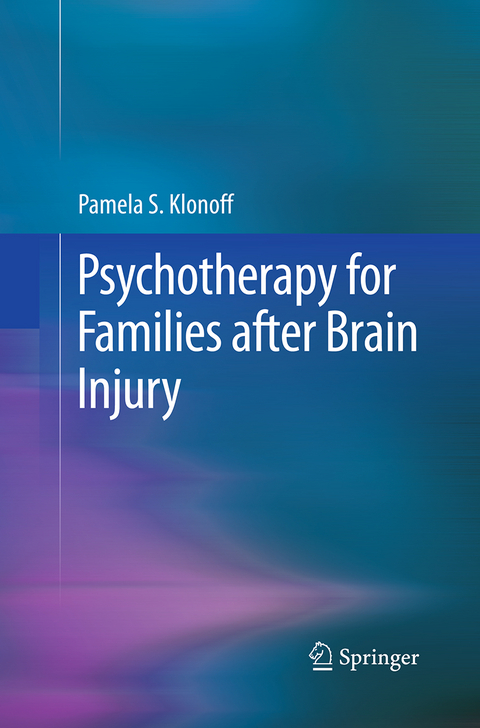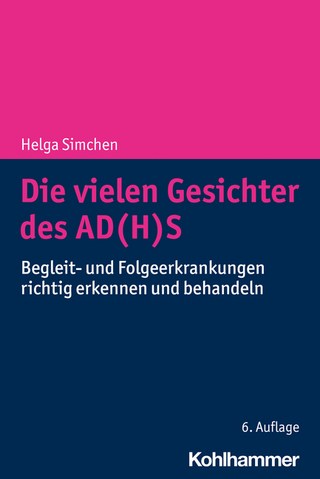
Psychotherapy for Families after Brain Injury
Springer-Verlag New York Inc.
978-1-4899-7818-9 (ISBN)
Whether caused by illness, accident, or incident, brain injury requires multi-tiered resources for the patient and considerable external care and support. When recovery is sidelined by depression, anger, grief, or turmoil, family members and the support network have critical roles to play and need their own guidance and compassionate therapeutic interventions.
Psychotherapy for Families after Brain Injury offers theoretical frameworks and eclectic techniques for working effectively with adult patients and their families at the initial, active and post-treatment phases of rehabilitation. This practical reference clarifies roles and relationships of the support network in interfacing with the loved one and addresses the understandably devastating and sometimes derailing emotions and psychosocial adversities. The content promotes psychoeducation and guided exercises, delineates “helpful hints” and coping tools and proffers multimedia resources to overcome hurdles. Constructs of awareness, acceptance and realism for all parties are woven throughout, along with ideas to enhance the support network’s commitment, adjustment, positivity, hope and longevity. Case excerpts, instructive quotes from caregivers and nuggets of clinical advice assist in analyzing these and other topics in salient detail:
The impact of brain injury on different family members.
Treatment themes in early family sessions.
Family therapy for moderate to severe brain injury, concussion and postconcussion syndrome.
Family therapy after organic brain injury: stroke, anoxia, tumor, seizure disorders.
Family group treatment during active rehabilitation.
End-of-life and existential considerations and positive aspects of care giving.
Aftercare group therapy for long-term needs.
The hands-on approach demonstrated in Psychotherapy for Families after Brain Injury will enhance the demanding work of a rangeof professionals, including neuropsychologists, clinical psychologists, rehabilitation psychologists, family therapists, marriage and family counselors, psychiatrists, behavioral/mental health counselors, clinical social workers, rehabilitation specialists such as speech-language pathologists, physical and occupational therapists, and graduate students in the helping professions.
Pamela Klonoff, Ph.D. has been clinical director of the Center for Transitional Neurorehabilitation at the Barrow Neurological Institute of St. Joseph’s Hospital and Medical Center in Phoenix, Arizona since 1993. The Center treats a population of adolescents and adults with brain injury. Dr. Klonoff received her doctorate in philosophy from University of Victoria and her MS degree from the University of British Columbia. She is a diplomate in clinical Neuropsychology from the American Board of Professional Psychology, a Fellow of the National Academy of Neuropsychology, and is a member of the American Psychological Association and the American Academy of Bereavement. She is on the editorial board of Neuropsychological Rehabilitation and Archives of Physical Medicine and Rehabilitation. She is the author of several books, most recently Psychotherapy After Brain Injury (2010, Guilford Press).
Introduction and Overview.- Families’ Early Sessions, Emotional Status and Treatment Themes.- The Impact of Brain Injury on Different Family Members.- Family Psychotherapy after Moderate to Severe Traumatic Brain Injury.- Family Psychotherapy for Concussions and the Post concussive Syndrome.- Family Psychotherapy after Stroke and Anoxic Brain Injury.- Family Psychotherapy after a Brain Tumor.- Family Psychotherapy for Seizure Disorders.- Family Group.- Loved Ones’ End of Life and Existential Considerations as a Caregiver.- Aftercare Group for Long Range Needs.
| Erscheinungsdatum | 15.09.2016 |
|---|---|
| Zusatzinfo | 23 Illustrations, black and white; XIII, 492 p. 23 illus. |
| Verlagsort | New York |
| Sprache | englisch |
| Maße | 155 x 235 mm |
| Themenwelt | Geisteswissenschaften ► Psychologie ► Biopsychologie / Neurowissenschaften |
| Geisteswissenschaften ► Psychologie ► Klinische Psychologie | |
| Medizin / Pharmazie ► Medizinische Fachgebiete ► Psychiatrie / Psychotherapie | |
| Medizin / Pharmazie ► Physiotherapie / Ergotherapie ► Rehabilitation | |
| Medizin / Pharmazie ► Studium | |
| Sozialwissenschaften ► Pädagogik ► Sozialpädagogik | |
| Sozialwissenschaften ► Soziologie | |
| Schlagworte | Aftercare groups • behavior therapy • Brain Injury • Brain tumor • Caregiver support • Cerebrovascular accident • Cognitive Behavioral Therapy • Compensation training • Coping skills • Existential therapy • Family Therapy • Family treatment techniques • Neurorehabilitation • Post-concussive syndrome • Post-traumatic stress disorder • Psychodynamic therapy • Psychoeducation • PTSD • quality of life • Self-psychology • Skills Training • stress management • Support network • Trauma |
| ISBN-10 | 1-4899-7818-6 / 1489978186 |
| ISBN-13 | 978-1-4899-7818-9 / 9781489978189 |
| Zustand | Neuware |
| Haben Sie eine Frage zum Produkt? |
aus dem Bereich


